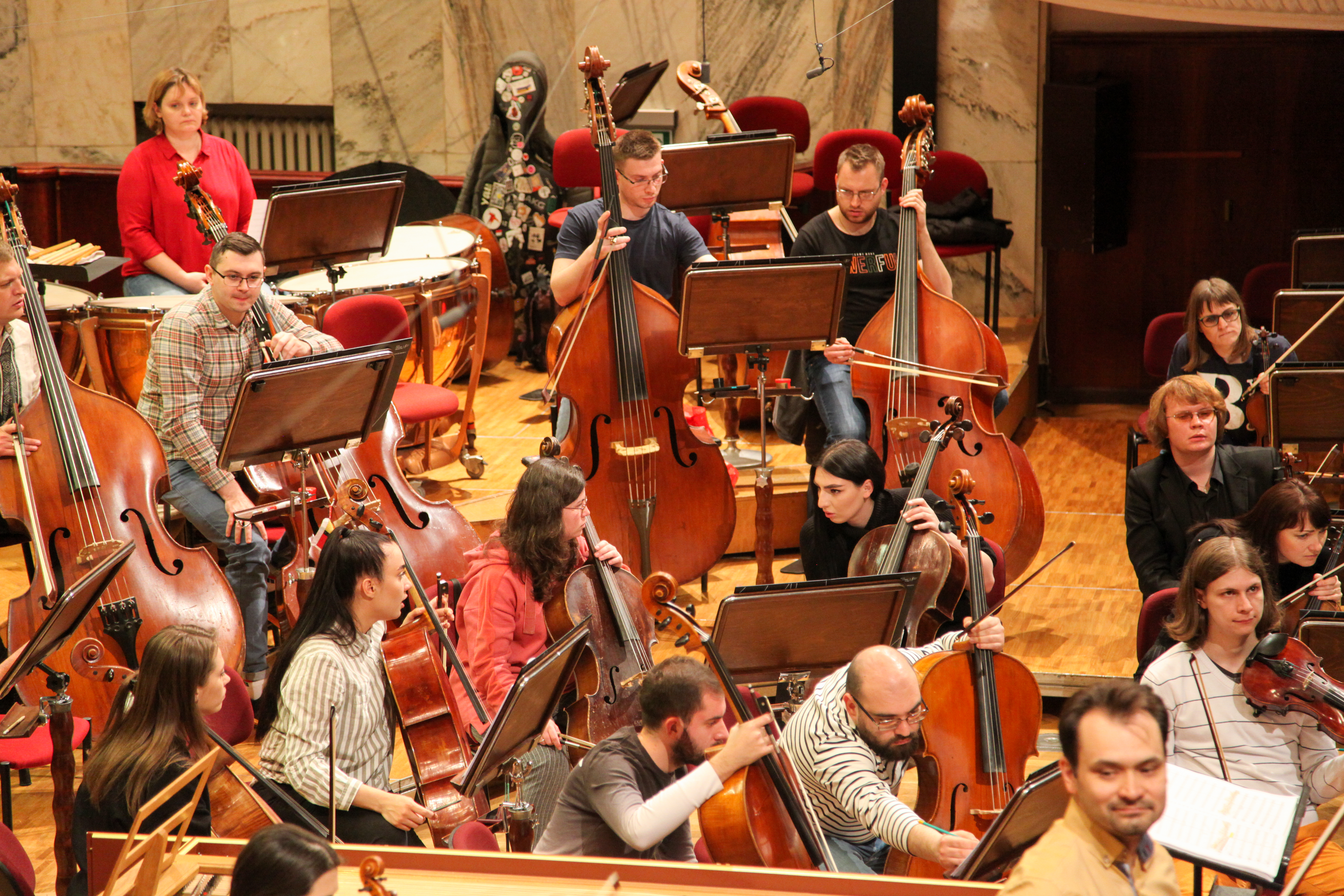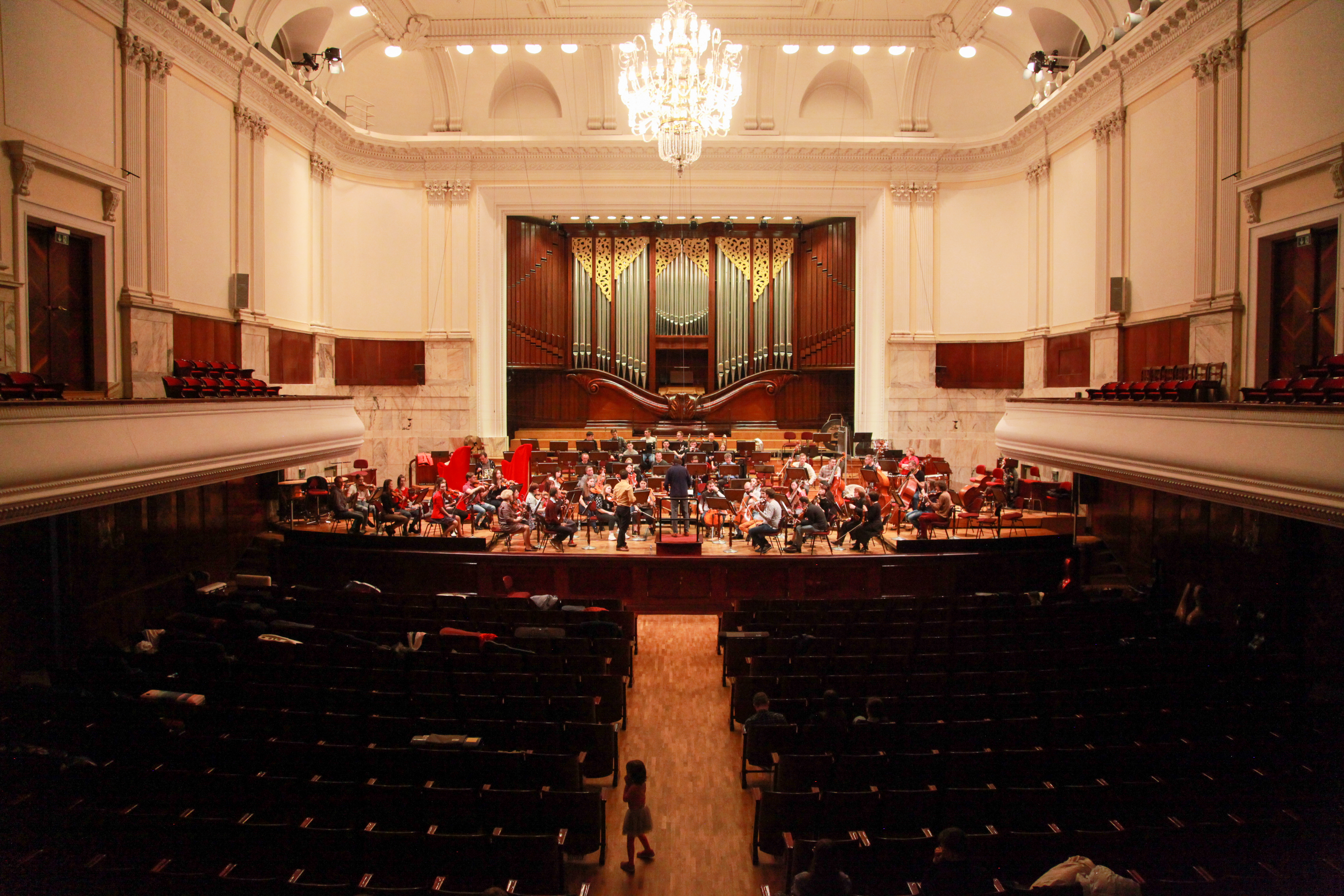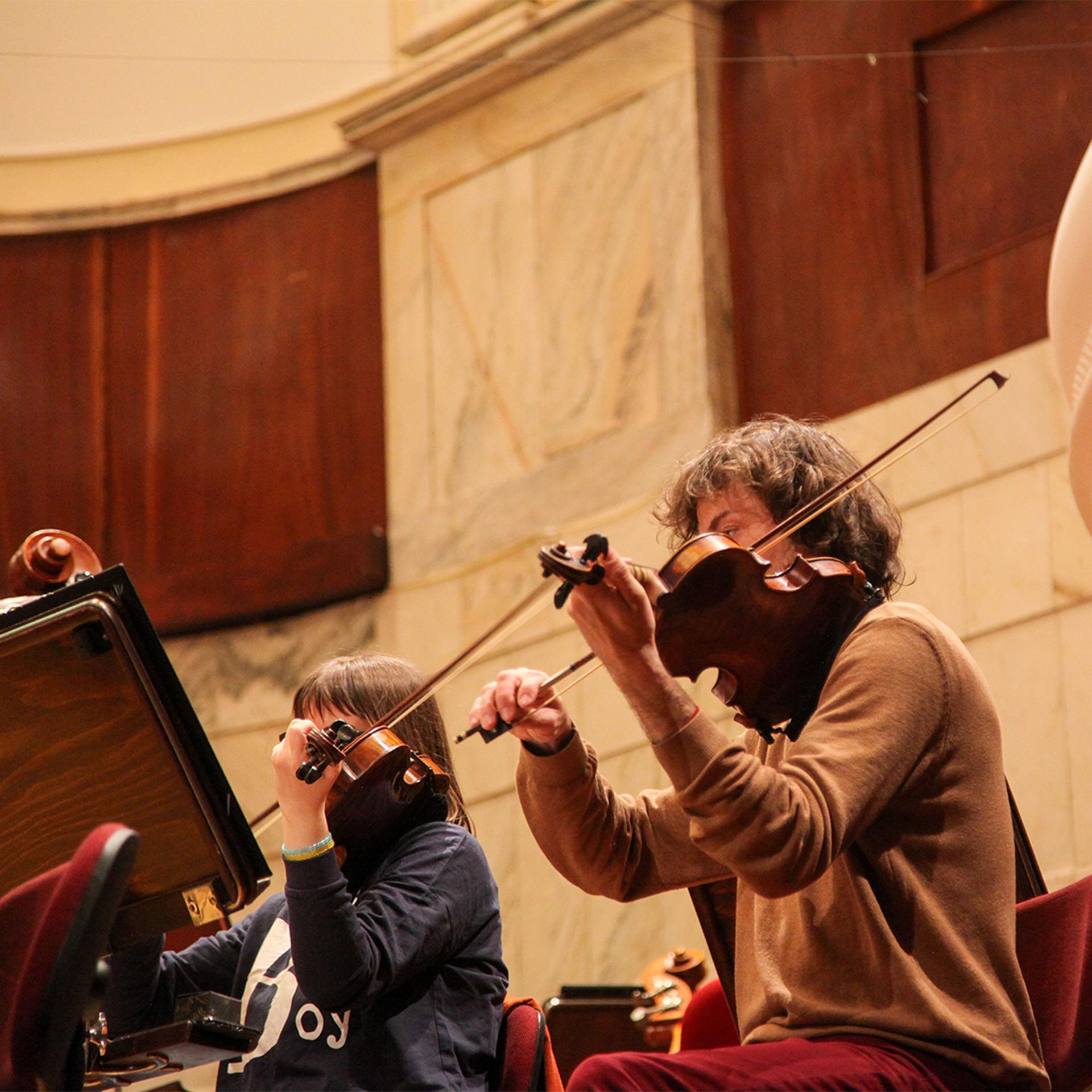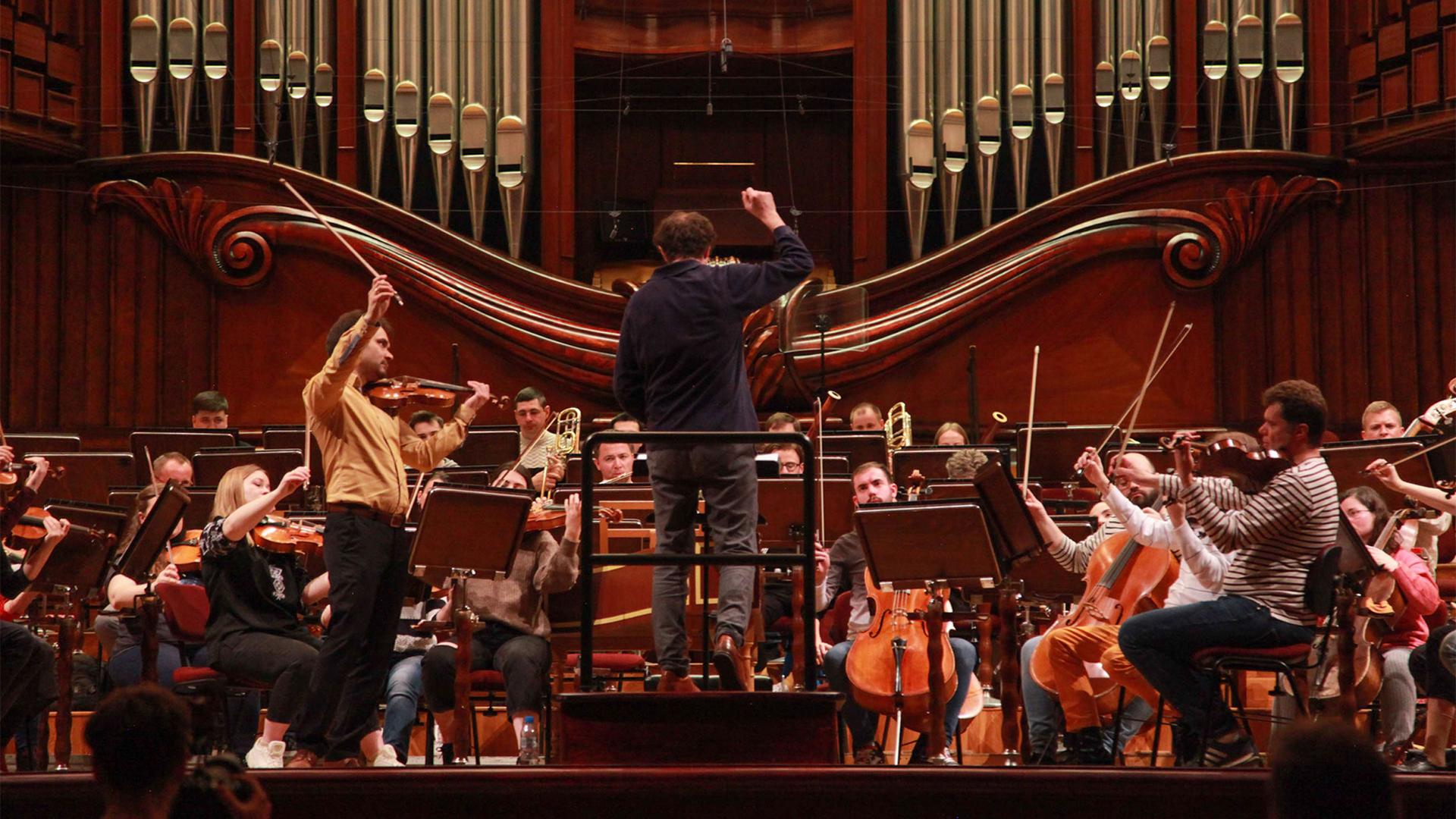After Russia’s full-scale invasion of Ukraine began on Feb. 24, the musicians of the Kyiv Symphony Orchestra scattered, sheltering wherever they could. According to conductor Luigi Gaggero, it was a frightening time.
“I was in contact with many of them and would get this answer: ‘Sorry, Luigi, can you call me in one hour? They are bombing now, so I want to speak a little bit later,’” he said. “And so on and so on. And you think, let’s hope that this evening they are still alive.”
When they finally reunited to rehearse, Gaggero was overjoyed to see them — but didn’t have very high expectations, musically speaking, because they’d all had more important things to do than practice. But the orchestra surprised him.
“Music for musicians is like the air we breathe and so, again, everybody was breathing again, and that was unbelievable.”
“Precisely because of this situation, the energy — because they were missing, not only their job, they were missing the existential reason of their lives,” he said. “So, music for musicians is like the air we breathe and so, again, everybody was breathing again, and that was unbelievable.”

Just one month later, the orchestra was mobilizing to go on tour on a mission of cultural diplomacy: cultural emissaries in a war that is playing out on more than just physical front lines. The Ukrainian Ministry of Defense granted special permission for the male musicians to leave the country, calculating that the world will be more motivated to protect Ukraine if it sees its culture as something precious and worth saving.
Related: ‘Their lives collided with war’: Ukrainian refugees in Poland open their own schools
“Actually, one of our musicians of the symphony orchestra started to drive the ambulance, and he is still in Ukraine, in Kyiv doing that,” said orchestra spokesperson Liza Sirenko, speaking outside a rehearsal at the National Philharmonic in Warsaw, Poland, on the eve of the tour. “One of our musicians signed a contract to be a territorial defense. But when our government saw that today the cultural front is important, as well as military, we decided to do this tour.”

Over the course of a week and a half, through the end of April and early May, the orchestra performed in world-class venues across nine cities in Poland and — pointedly — Germany, which has been widely accused of taking a relatively soft stance toward Moscow. At a time when the world is listening to Ukrainians more than ever before, the tour was named “Voice of Ukraine” for a reason.
The intention was “to share and to prove that our culture is unique,” Sirenko said. She added that some of the German concerts had sold out in advance, something that would have been inconceivable only a few months ago.
The echoes of history were evident on the tour. More than 100 years ago, during another period of immense turmoil, the Ukrainian National Chorus had also departed Ukraine on a mission of cultural diplomacy. It was in the brief moment when the Ukrainian People’s Republic was declared in 1918. That choir brought the song “Shchedryk” to the world. It’s the Christmas song, “Carol of the Bells,” now known around the globe.
Meanwhile, the program of the “Voice of Ukraine” tour featured mostly the work of composers from the region, from the 17th century through the present.
Related: ‘Home is home’: Ukrainians in Poland consider options as Russia’s war enters new phase
“It’s Ukrainian composers who show our culture as no one can, because it’s Maksym Berezovsky, who is Ukrainian actually, even though Russia called him [a] Russian composer because he worked in the Russian empire. But he’s Ukrainian,” Sirenko said.
Setting the record straight on Berezovsky’s heritage was just one way the orchestra aimed to reclaim the narrative on Ukrainian identity.

The program also included a symphony by Borys Lyatoshynsky, who died in 1968 and whose work was restricted by Soviet censors during his lifetime. The orchestra performed the uncensored version of Lyatoshynsky’s symphony, assistant director Ivan Stetskyi said.
“The composer lived through the horrors of World War II, all the repressions to our Ukrainian composers who just wanted to develop our culture and do something new and uplift Ukrainian art,” Stetskyi said.
Stetskyi said upon his return to Ukraine that he would help in the war effort however he could, and would pick up a weapon if he had to, but that the work of cultural diplomacy was important.
“Our culture is on the same level as all others, but it just hasn’t yet reached all the world’s concert halls, our Ukrainian music,”
“Our culture is on the same level as all others, but it just hasn’t yet reached all the world’s concert halls, our Ukrainian music,” he said. “But with time, I expect it will be heard.”
Even conductor Gaggero, who is Italian, had not heard of many Ukrainian composers before traveling to Kyiv 10 years ago.
Related: Why Ukrainian Americans are committed to preserving Ukrainian culture — and national sovereignty
“I think there are still today, a lot of masterpieces and a lot of great Ukrainian composers who, in Western Europe, we still don’t know. So, I think that would be the first small contribution to [share with the] public this great music,” he said.
On opening night, it was a full house at the Warsaw Philharmonic. In a surprise moment not noted in the program, the orchestra began performing the Ukrainian national anthem. The crowd stood. Some wiped away tears.
The “Voice of Ukraine” tour was just the beginning of Ukraine’s cultural diplomatic efforts. A new orchestra, the Ukrainian Freedom Orchestra, will also be on tour this summer, starting in July. It will be comprised of members of Ukrainian orchestras and European ensembles, as well as Ukrainian refugee musicians.
